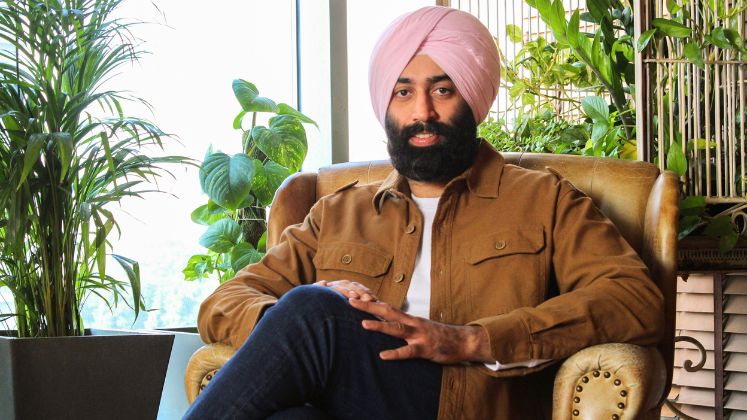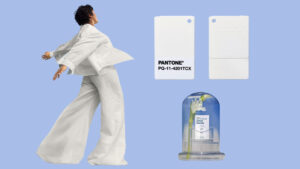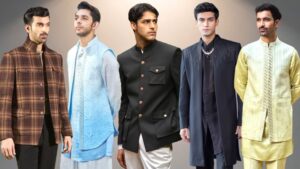The competition in the denim market is heating up, with start-ups giving established players a run for their money. Gen Z is eager to try new brands, pushing the big names to step up their game. “A key aspect of such brands is their low price strategy,” emphasised Jaiwant S Dhingra, Director of Marketing and Business Development, Numero Uno.
The denim brand closed FY ’24 with Rs. 500 crore in MRP sales and over 300 EBOs across India. “We are one of the top 10 denim brands in the country,” Jaiwant added.
In terms of revenue breakdown, men’s denim accounts for 28 per cent, men’s shirts for 22 per cent, men’s outerwear for 20 per cent and men’s knits for 30 per cent. Womenswear is being relaunched and a clearer picture will emerge by next FY, highlighted Jaiwant. He also shared, “We’ve recently revamped our e-commerce website and it’s still growing. We expect it to contribute 30 per cent – 35 per cent of our sales over the next 2-5 years. Currently, marketplaces make up 2.5 per cent – 3 per cent of our total net sales.” Moreover, Jaiwant noted a growing trend in India where consumers are willing to pay a premium for sustainable products, especially those using organic cotton, recycled materials and water-saving technologies
In an exclusive interview with Apparel Resources, Jaiwant discussed in detail about his strategies for pursuing growth.
AR: Some believe that the rise of leisurewear has diminished the popularity of denim and that its demand may face challenges in the future. What’s your view on this?
Jaiwant: The rise of leisurewear has undoubtedly reshaped consumer preferences, but I don’t think it spells the end for denim.
Denim has a storied history, evolving from workwear to being a fashion staple that adapts to trends without losing its identity. It is durable, adaptable and easily integrated into casual and/or more refined outfits unlike leisurewear which is more niche. Even though leisurewear offers comfort, many brands including Numero Uno have recognised the need to innovate and craft denims with increased comfort. We have our ‘Feather Touch’ series of denims which is feather weight and feels like absolute butter for the wearer, as well as our ‘Jog-Jeans’ which is a play on Jogger Denims giving you the best of both worlds – leisurewear and denims. No wonder, Performance denims are gaining traction, integrating features such as stretchability, moisture-wicking and temperature regulation, which appeal to those seeking comfort and an active lifestyle. Bi-stretch and power stretch denims are another trend, offering superior comfort and flexibility, making them ideal for a variety of body types.
We’re also always continually exploring newer fabrics, softer textures and improved fits to meet modern comfort demands. This is the kind of adaptability that keeps denim relevant.
AR: Do you regularly adjust the pricing of your products to account for cost increases? If so, by what percentage have you raised prices in the last couple of years?
Jaiwant: Pricing adjustments are a key part of staying competitive and we always aim to strike the right balance. We are constantly trying to keep costs in check by exploring cost-effective alternatives, negotiating better prices with suppliers, optimising materials and streamlining production to reduce waste. Our pricing strategy is dynamic, factoring in not just costs and margins, but also market conditions, demand and competition. We regularly adjust prices to reflect increases in raw material costs, production, transportation and inflation.
Over the last couple of years, we’ve typically raised prices by 10 per cent – 15 per cent, depending on the product category and cost fluctuations. Our goal is to always balance absorbing some of the cost increases while passing only a reasonable portion to our customers, ensuring value and affordability remain at the core of what we offer.
AR: With new start-ups rapidly entering the denim market, do you think they pose a real challenge to established brands? How do you plan to stay ahead in this increasingly competitive landscape?
Jaiwant: The denim market is certainly seeing a lot of new energy and competition is becoming fiercer.
Brands like us thrive on the trust and emotional connect that we have built over the years. Having said that, I agree the new start-ups have great technical expertise and are masters in marketing. They are also hungry to grow, pushing us to innovate and continuously improve. We can’t be complacent.
A key aspect of such emerging brands is their low price strategy, but in the rush to offer fast fashion at lower costs, they often compromise on quality. We’ve seen many such brands come and go because, for dedicated denim consumers, fit and durability matter in the long run.
We all know competition is good as it pushes us to work harder and remain relevant. But again, in this competitive rush, brands should never let go of their original values and personality. Every brand has its USP and they keep all their efforts aligned around these USPs.
AR: How has innovation contributed to the growth of your brand?
Jaiwant: Product innovation and new product development form the very basis of our everyday working. We have partnered with Spanish company Jeanologia, a leading industry innovator and jeans washing consultancy for finishers. Jeanologia has developed several technologies using light and air to finish jeans using little water and no chemicals which became popular as laser technology. By using laser technology, we can give a pair of jeans a worn look instead of Sandblasting or Hand-sanding which can be detrimental to workers and the environment. We have also adopted their G2 ozone treatment tech, which helps fade down the indigo jeans instead of using chemicals like bleach.
Extensive use of laser machines, E-Soft, Ozone/G2 and cold-eco-dyeing processes have helped us in reducing water and chemical consumption significantly. Besides this, as a responsible corporate, we practice rainwater harvesting to replenish groundwater, use solar panels, wind ventilators and energy-efficient lighting in our manufacturing plant in Selaqui (Uttarakhand) to economise power consumption
We have a state-of-the-art ETP which ensures 98.5 per cent the water used at every stage of production is recycled and reused.
AR: As a marketing expert, could you share three common mistakes that brands should avoid when promoting their products or brand?
Jaiwant: It’s a tricky question because the needs and demands vary for each brand, but there are a few common mistakes that can apply across the board.
Firstly, brands must understand their consumer demographics and design their campaigns accordingly. Sometimes campaigns misfire because this aspect is ignored.
Secondly, many brands focus too heavily on product features and fail to communicate what truly sets them apart. In a saturated market, failing to convey a clear and completing USP results in blending in with your competitors.
Thirdly, constant evolution in terms of adapting to trends as well as adopting newer, refined technology is important. Striking a fine balance between the brand ethos and trends is the need of the hour.
Lastly, in the era of multi-channel marketing, building a strong brand image is vital. Inconsistency in brand tone, visuals can dilute brand value. It’s essential to maintain a cohesive narrative across platforms, whether it’s social media, website or offline. Each touchpoint should reflect the same brand personality, voice and promise.
AR: What are your expansion plans and which regions or markets are you targeting?
Jaiwant: Continuous and well planned expansion is the key for survival for any retail brand. After solidifying our position as a go-to denimwear brand in North India, we are expanding fast in the Eastern part of India. Regions like Bihar, Jharkhand, Assam and WB hold immense potential. Not only the major cities, but mid-size and smaller cities like Jehanabad, Bokaro, Siliguri, Asansol etc., have surprised us with their desire and demand for premium quality denimwear. Moreover, urban cities and metros have nearly reached a saturation in terms of growth and exploration.
Apart from this, we are fast expanding in Andhra Pradesh and Telangana. Our strategy there is to make a strong presence at premium MBOs, Large Format Stores and Shop-in-Shops and gain customer loyalty and confidence. Recently we opened an EBO at Hyderabad. We are happy with the kind of response that it has generated and this gives us confidence to expand further in that region. Simultaneously, we are looking to expand in Karnataka as well as Kerala. Eventually, our aim is to open EBOs in this region in years to come.







